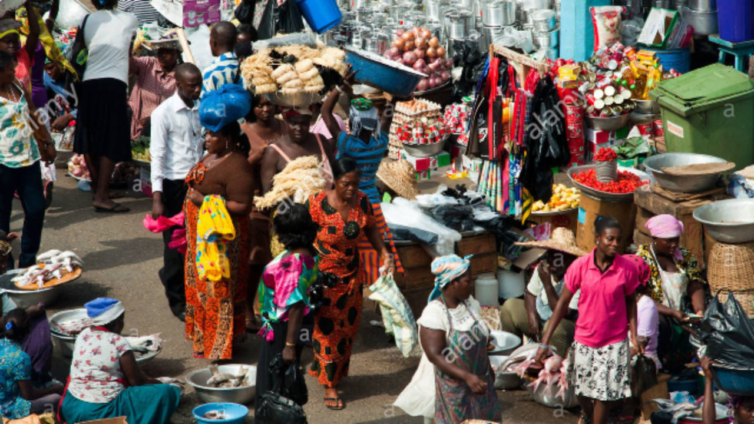The Ghana Statistical Service (GSS) has revealed that about 22 million Ghanaians out of the projected 31 million population have experienced a drop in income since March 16, when various restrictions due to coronavirus were introduced.
Government Statistician, Professor Samuel Kobina Annim, indicated the figure constitutes 77.4 per cent households in Ghana who have experienced the decline.
He made this known at the maiden edition of a series of briefs organised by the Service known as the Covid-19 Households and Jobs Tracker Survey Report in Accra.
According to him, the restrictions led to every seven out of 10 employees not working in the previous seven days, of which a majority indicated was as a result of Covid-19 safety concerns.
He noted, while some individuals had not worked within this period due to of suspension of work, there are others who had not because of the reduction in staff capacity of organisations.
Also, some individuals highlighted retirement and seasonal job, as their reason for not working in the previous seven days.
“Seven out of 10 of respondents indicated that they had not worked in the previous seven days; of these respondents, 36 per cent did not work due to Covid-19 related concerns,” Professor Annim said.
“A further 20.4 per cent mentioned Covid-19 work suspension as the reason for not working, while 2.4 per cent attributed it to a reduction in staff due to less business, with the rest having other reasons for not working (retirement, seasonal workers),” he added.
The GSS stated that close to three-quarters of households indicated that they could easily purchase staple foods while another 15 per cent reported not to be able to buy at least one staple food in the seven days prior to being interviewed due to financial constraints.
The Professor mentioned that a fifth of households did not have regular access to water, 8.6 per cent of household could not buy medicine when they needed to and 6.1per cent of households tried to access it but were unable to.
On education, he noted that, there were challenges in learning while school was not in session. The main difficulty in the process for the basic and SHS being difficulty to access ICT tools.
However, he said students were engaged in a variety of learning activities through watching educational TV programmes.
“Sixty-five per cent of basic school students and 72 per cent of Senior High School (SHS) students were still engaged in different types of learning activities; the most common of these activities was watching educational TV programmes,” he said.
Nonetheless, Professor Annim explained that, less than 10 per cent of households interviewed had received at least one form of assistance.
He stated that the most common remedy people opted for, under the effects of the Covid-19 was to reduce food consumption, reduce non-food consumption and also rely on savings.
According to Professor Annim parents expressed that; they were often angered by their children, since the closure of schools, making them stay home every day.
The report which stemmed from data collected by the GSS data in a nationally representative telephone survey to gauge effects of Covid-19 on households and jobs in Ghana from June 10 to June 25, 2020, also revealed that majority of Ghanaians had heard of the Covid-19.
Latest Stories
-
Which will you vote for in 2024 Election: Honesty, Character, or Campaign Promises?
3 hours -
The ball is in Iran’s court after US pressure pays off
3 hours -
‘Japa’ sweeps Nigeria’s hospitals
4 hours -
Obuasi: Catholic Voices GH choral peace concert unites NPP, NDC
4 hours -
Lordina Supports NDC campaign in Ketu North with donation of medical equipment to Afife Health Centre
4 hours -
MTN Foundation delivers crucial technology tools to Eastern Regional Hospital
4 hours -
Galien Forum Africa: Enhaning African women’s role in climate and environmental crises
10 hours -
7th Galien Africa Forum ends with emphasis on health, innovation, and climate action in Africa
10 hours -
Ruthless Barcelona thrash Real Madrid to go 6 points clear
10 hours -
National Farmers’ Day scheduled for November 8
11 hours -
Samson’s Take: Why over 75% vote but only 5% join protests
12 hours -
Krachi East Chiefs applaud Bawumia for campaigning on issues with evidence
13 hours -
National Security Ministry dismisses Reuters’ claims that militants are using Ghana as logistical base
13 hours -
BOST and its CEO win big at 8th Ghana Energy Awards
14 hours -
Accused person in protest over alleged $3m BOST scandal discharged
14 hours

